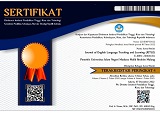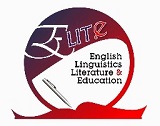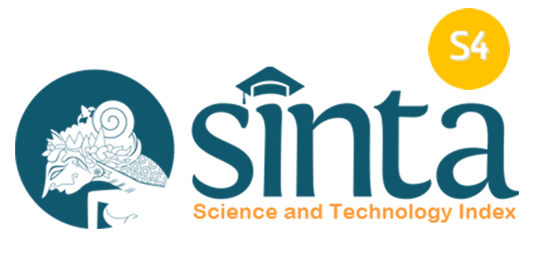An ESP textbook evaluation: the case of English for Islamic Insight
Abstract
Abstract. The crucial presence of instructional materials at English classes, especially English for Specific Purposes, has commonly been approved. ESP materials provide exposure to the genres needed by the students, including those at Islamic Education Department. It is, therefore, inevitable that the textbook meets some criteria for the success of the program. In this paper, the writers evaluated an ESP textbook institutionally prepared for students of Tarbiyah and Teacher Training Faculty at IAIN Tulungagung. The analysis in this qualitative descriptive research was based on Cunningsworth’s and Miekley’s checklists for textbook evaluation. The book was evaluated on the category of aims and approaches, design and organization, content, skills, topic, methodology, vocabulary and grammar, exercises and activities, attractiveness of the text and physical make up, context, and practical considerations. The results showed that almost all categories are marked as adequate. It is indicated that the textbook mainly focused on vocabulary enrichment. Some recommendations for textbook improvement and revision are given at the final part of this study, particularly those related to the challenge on the advanced of technology.
Keywords. ESP; Textbook Evaluation; English for Islamic InsightReferences
Ary, D., Jacobs, L. C., Sorensen, C., & Razavieh, A. (2010). Introduction to Research in Education. Belmont: Wadsworth cengage Learning.
Azarnoosh, M., & Ganji, M. (2015, June 15). ESP Book Evaluation: The Case of Management Course Book. International Journal of Secondary Education, 3(3), 21-25.
Baleghizadeh, S., & Rahimi, A. H. (2011, September). Evaluation on an ESP Textbook for the Students of Sociology. Journal of Language Teaching and Research, 2(4), 1009-1014.
Basturkmen, H. (2010). Developing Courses in English for Specific Purposes. New York: Palgrave MacMillan.
Basuni, M., Istiqomah, F., & Susanto. (2017). English for Islamic Insight for Tarbiyah and Teacher Training Faculty. Tulungagung: IAIN Tulungagung Press.
Cunningsworth, A. (1995). Choosing Your Coursebook. London: MacMillan.
Dayane Tous, M., & Haghighi, S. (2014, April). Evaluation of ESP Textbook: Evidence from ESP Textbook of Computer Engineering Major. International Journal of Research Studiesin language Learning, 3(2), 55-68.
Dudley-Evan, T., & Johns, A. M. (1991). English for Specific Purposes: International in Scope, Specific in Purpose. TESOL Quarterly, 25(2), 297-314.
El-Sakran, A. T. (2012). Evaluation of an English for Specific Purposes (ESP) Book for Students of Islamic and Arabic Studies. English for Specific Purposes World, 12(34).
Fikry. (2017). An Analysis of an EAP Course Book Used in Islamic Higher Education. The 4th UAD TEFL International Conference, (pp. 234-246). UAD Yogyakarta.
Hutchinson, T., & Waters, A. (1991). English for Specific Purposes: a Learning-centred Approach. Cambridge: Cambridge University Press.
Karimnia, A., & Mohammad Jafari, F. (2017). Critical Textbook Evaluation: The Case of Visual Arts Textbook. Sustainable Multilingualism, 219-236.
Kern, N. (2013). Technology-integrated English for Specific Purposes lessons: Real-life Language, Tasks and Tools for Professionals. In G. Motteram, Innovations in Learning Technologies for English Language Teaching (p. 88). London: British Council.
Miekley, J. (2005). ESL Textbook Evaluation Checklist. The Reading Matrix.
Mukundan, J., Hajimohammadi, R., & Nimehchisalem, V. (2011, June). Developing an English Language Textbook Evaluation Checklist. Contemporary Issues in Education Research, 4(6), 21-28.
Richards, J. C. (2001). Curriculum Development in Language Teaching. Cambridge: Cambridge University Press.
Suhirman, L. (2018, January). ESP Textbook Evaluation: English for Islamic Learning for College Students. IJOLTL, 3(1), 13-22.
Syaifulloh, B. (2014). An Evaluation of an ESP Textbook from Lecturers' Perspectives: The Case of English for Islamic Studies Book. The 61st TEFLIN International Conference (pp. 237-240). Solo: UNS.
DOI: https://doi.org/10.18860/jetle.v1i2.8262
Refbacks
- There are currently no refbacks.
Jalan Gajayana 50 Malang 65144, Jawa Timur, Indonesia

This work is licensed under a Creative Commons Attribution-ShareAlike 4.0 International License.
Indexed by





